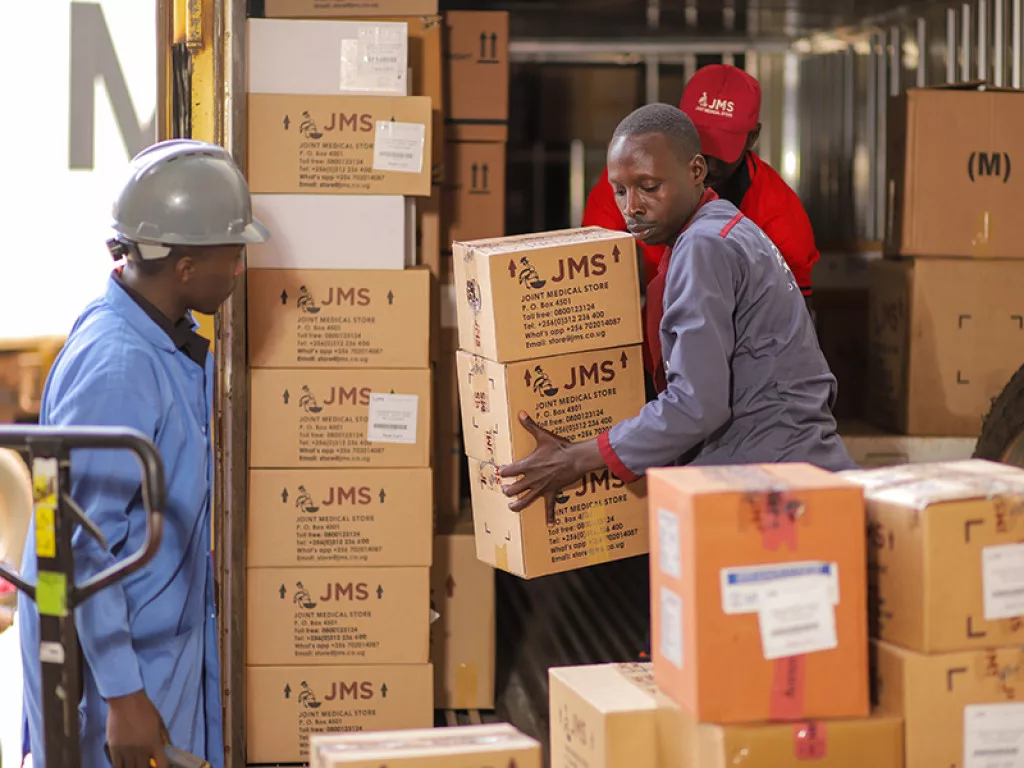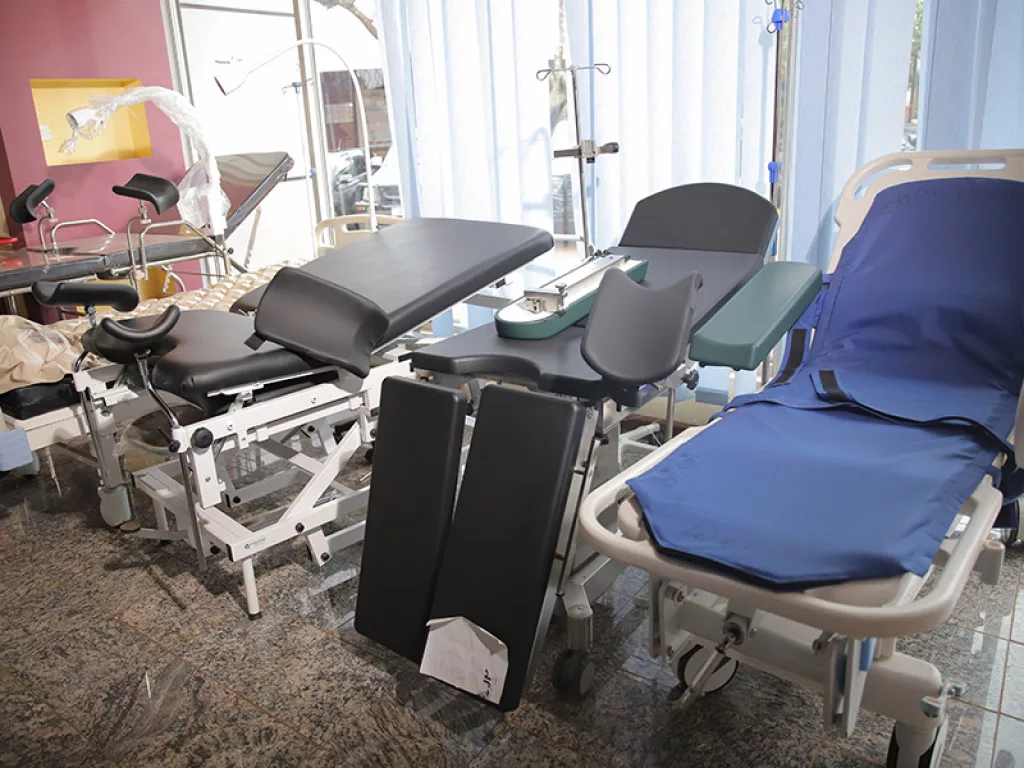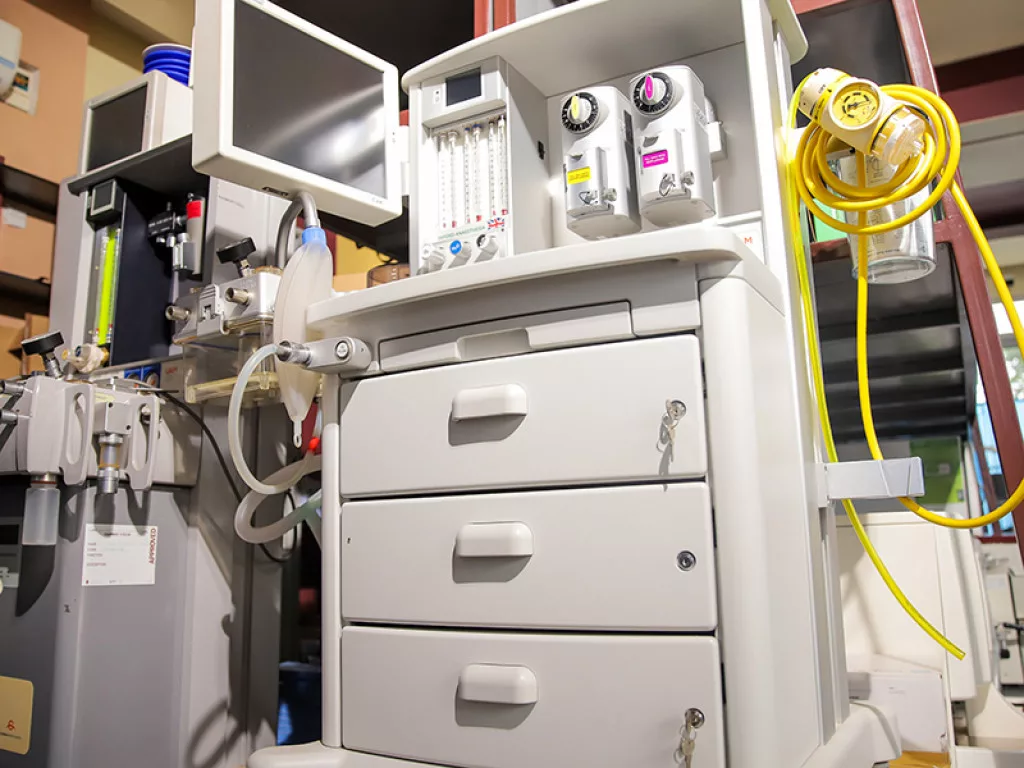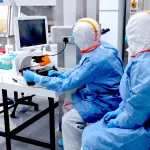Joint Medical Store is expanding across Uganda with the sole aim to provide medical products, equipment and services to as many facilities as possible. Executive Director Bildard Baguma tells us more about the company changing the face of the Ugandan medical space.
INTRODUCTION
“The healthcare space in Uganda is an interesting one, despite the many challenges we face. There has been a great deal of disruption resulting from the COVID-19 pandemic and the war in Ukraine, yet there has also been significant development in the supply chain, automation and various processes, the latter of which are very promising.”
It is no surprise that both the pandemic and the Russia-Ukraine conflict have impacted the African healthcare sector. Reduction in supply is a key issue for Uganda in particular, as a landlocked country sat close to the centre of the African continent, where supply chains already face infrastructure challenges such as limited road networks across rough terrain.
Operating throughout the country in this most critical sector, Joint Medical Store (JMS) is the leading private-not-for-profit (PNFP) non-governmental organisation (NGO) pharmaceutical store in Uganda, serving at least 3,000 medical facilities. JMS was established in 1979 as a joint venture between Uganda Catholic Medical Bureau (UCMB) and Uganda Protestant Medical Bureau (UPMB), and is licensed by the National Drug Authority (NDA) to engage in the import, export, and wholesale of medicines and related healthcare supplies.
“Initially, JMS was established to educate and provide health supplies to healthcare facilities and to the church, and it has since grown both in its services and scope of work and support,” introduces Bildard Baguma, Executive Director of JMS.
“We supply government-owned and private healthcare facilities, and currently have around 2,500 customers. JMS procures warehouses and distributes essential medical supplies and equipment, transporting them to cities across the country. We are duly registered as a corporate body under the Trustees Incorporation Act, Cap-165 and under the NGO Registration Amendment Act, 2006.”

“We believe that it is not only important to provide our services to communities, but also properly manage and maintain them”
Bildard Baguma, Executive Director, Joint Medical Store
SERVING THE COMMUNITY
JMS specialises in four primary areas within the healthcare industry: health supplies management, capacity building, the installation, servicing and maintenance of medical equipment, and warehousing and distribution.
“Partnering with development partners, JMS lobbies, receives, manages and distributes inventory comprising of donor items like antiretrovirals (ARVs) and laboratory reagents. These are distributed to PNFP facilities,” Baguma tells us.
JMS empowers health workers through a comprehensive model that aims to optimise efficiency. The model components are intended to strengthen the facilities holistically in order to achieve continual growth, and the capacity-building modules offered include inventory management, customer care, communication and relationship management, financial management, and business mindset in a healthcare setting.
“JMS offers free installation, servicing and maintenance of all equipment purchased from JMS or any authorised JMS distributor, and has created a wide network of global medicines and equipment manufacturers and distributors,” Baguma adds.
“We believe that it is not only important to provide our services to communities, but also to properly manage and maintain them. We work across the entire country via our three branches, with an additional three branches currently being set up in the west, east, and northwest of the country. All of our locations are supported by pharmacies, engineers and other professionals.”


BRANCHING OUT
JMS’ expansion surrounds the aim to develop and increase the overall production capacity for healthcare supplies in Uganda.
The company’s old business model was designed around customers making orders at a JMS location, such as in the capital Kampala, receiving the products and transporting them back to their specific facilities. Moving with the times, this has changed both by design and necessity.
Since 2015, JMS has established its multiple branches to address the issues of outreach and accessibility for customers. Each of the three new branches provides greater access, and JMS is now starting construction on a warehouse that, once finalised, will be able to further streamline consignments and deliveries to facilities across the country.
On top of this, at the centre of the company’s product expansion, JMS established Joint Healthcare, a company that has been developing JMS’ locally manufactured products.
Joint Healthcare started with the production and distribution of hand sanitiser, a product especially proven by the COVID-19 pandemic, before branching into further categories.
“We are expanding our product range to the likes of ultrasound gel, sodium hypochlorite (disinfection agent), and liquid soap, while also finalising plans for the production of medical oxygen that will be distributed to medical facilities soon,” Baguma explains.
“On top of our product developments, we are also doing contract manufacturing for oxybutynin, and additionally, we are working with some partners in producing new capacity for Replenish Plus, an immune booster, and foods for special medical purposes (FSMPs) to help malnourished children in Uganda.”
DIGITAL DAYS AHEAD
According to Baguma, Uganda has a very young and rapidly growing population, and with this comes both increased technological accessibility and widespread use. Taking this into account, JMS recognises the need for technology integration as well as the adoption of digitalised methods and practices to further its presence and services, to best help and serve people across Uganda.
“JMS is very open to changes and evolving in the digital space, especially in light of the current information and digital revolution,” Baguma tells us. “We also operate in areas where many people don’t have sufficient access to computers, and sometimes don’t have the skill to use them, but it is very important to us that we develop a digital presence and ensure that customers can reach us digitally, without the need to visit us physically.”
To answer this, JMS set up an enterprise resource software called Industrial Financial Services (IFS), an integrated platform that handles all of the company’s operations, including warehouse management, order processing, financial transactions, and human resource transactions.
“This platform also provides capacity expansion to the customer and increases business connectivity,” Baguma continues. “In this way, the process of finalising allows us to see, order, process and save records of what we need to serve our customers in a surer and swifter way, streamlining our operations when it comes to business-to-business (B2B) activities.
“We believe that this will be crucial for us to be able to reach and supply our customers seamlessly. It is a heavy investment which we are continuing to do both on the side of the customer and the supplier. For the latter, we have integrated another system for advanced supplier notice to ensure full accountability of the commodities.”



TRAINING THE NEXT GENERATION
People are at the heart of JMS’ mission and central to the company’s success in the sector, whether they are pharmacists, engineers or warehouse workers processing orders and deliveries.
With people at the forefront, JMS places a great deal of value on bettering the skills and opportunities of those in the community.
“One of our roles and mandates at JMS is to ensure that we have the right kind of health workers who are trained and skilled enough for the job and to help people in Uganda,” Baguma elaborates. “We do this in various ways; we support our founding bureaus, the UCMB and the UPMB, to provide scholarships for staff in facilities to be able to train and gain more skills in the field, be it doctors, nurses, technicians or others.
“The second area of JMS’ engagement is working with Ugandan universities to support hands-on training in terms of providing space for students to undertake internships and practical training.”
Student training is a key part of JMS’ work with the Ugandan community, helping to raise up and train new generations of medical experts and front-line medical workers to further the Ugandan healthcare space, for example, in the area of health logistics.
“We also work with universities in developing programmes that surround supply chains, permits for engineering, and innovations that can further improve the efficiency with which we work in various areas,” Baguma says. “This, in our view, is one of the major roles that we play, improving the overall healthcare system and developing people’s skills to help manage the healthcare sector further.”
“We aim to make sure that our supply chain is efficient, and that it delivers value to the people that we serve”
Bildard Baguma, Executive Director, Joint Medical Store
EVOLVING HEALTHCARE
This training and preparation of the next generation of medical personnel is a key part of JMS’ vision for Uganda moving forward. At the same time, the company’s mission is to make sure that health facilities, and therefore by extension patients, can actually receive quality and affordable health solutions.
“We aim to make sure that our supply chain is efficient, and that it delivers value to the people that we serve,” Baguma reaffirms. “Therefore, one of these key priorities is digitalisation, and our ambitious digitalisation agenda ensures sufficient business-to-business activity and connectivity, which in the short- and medium-term will ensure that facilities and suppliers are able to reach us seamlessly. That is a key target that we are working on for the year.”
JMS is also working on its evolving portfolio of manufacturing products. The company is expanding its production facility so that it can increase the number and variety of products that it is producing locally, and in doing so, also improve and create employment opportunities for the community.
“Lastly, we have designed, continue to use, and expanded a key scheme that allows healthcare facilities to purchase and acquire the medical equipment they need,” Baguma adds. “Many facilities cannot afford to pay for equipment such as computerised tomography (CT) scanners as they are expensive pieces of kit, but our initiative is a game changer, and allows us to provide such equipment on a repay system so that each party receives what they need.”
With these three core focus areas for the years ahead, JMS is leading the development and expansion of healthcare products, equipment and supplies across Uganda, for a healthier, better and brighter future.



























